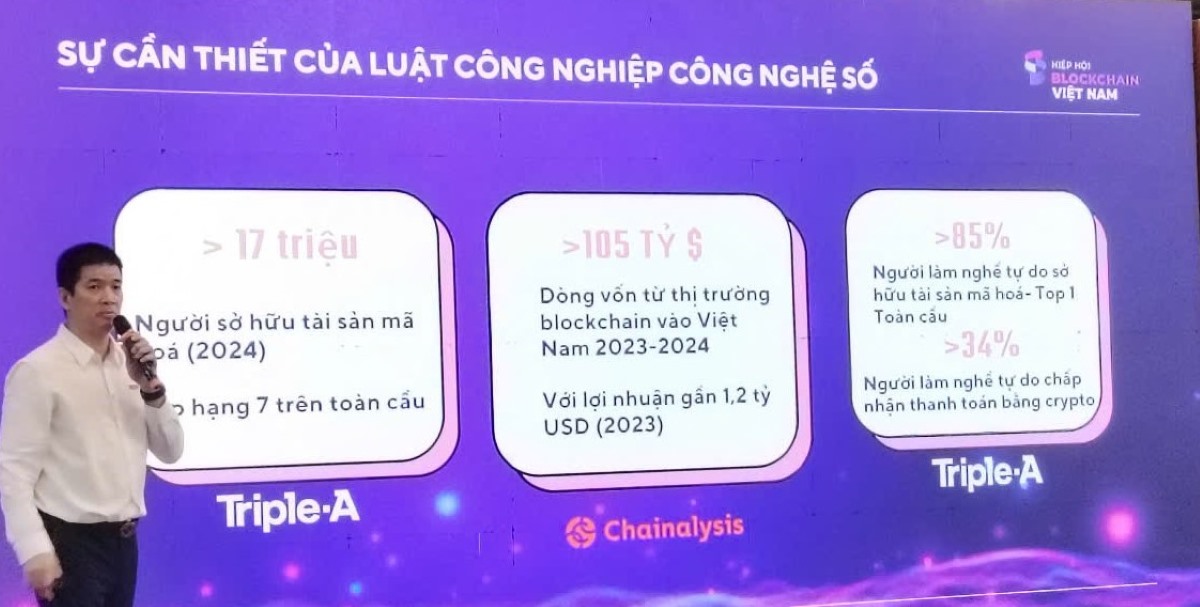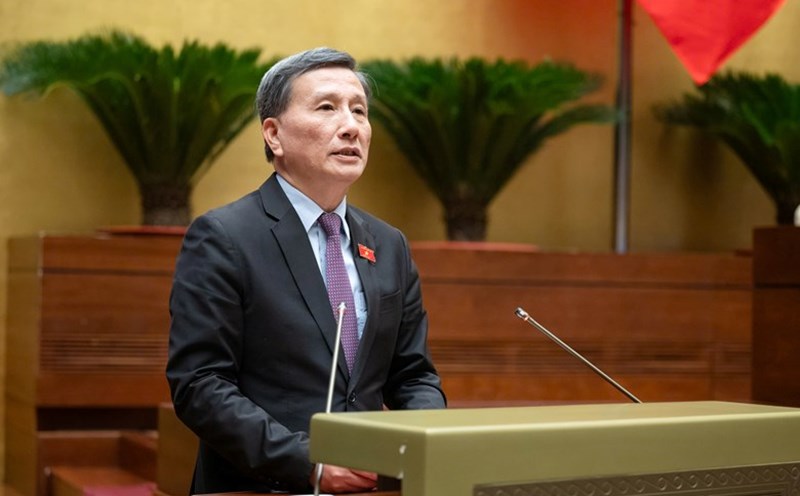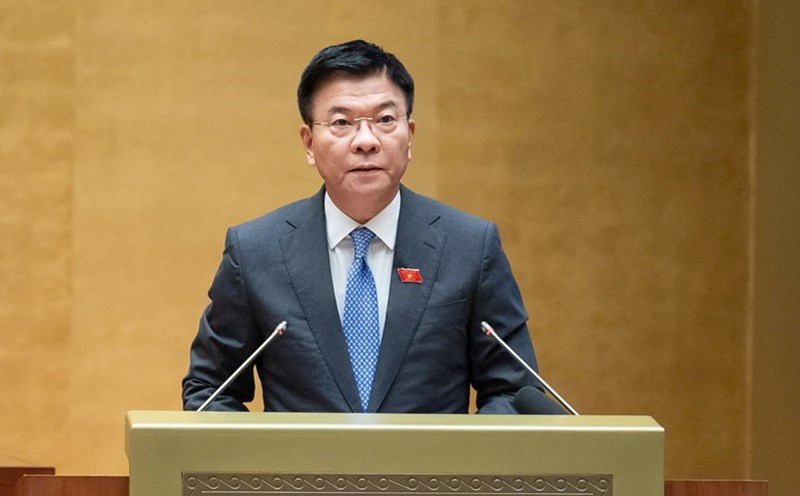The draft Law on Digital Technology Industry (CCNNS) has been completed and submitted to the National Assembly for approval in May 2025. To prepare for this, the workshop “Digital Asset Law on the eve of the promulgation of the Law on Digital Technology Industry” was held in Ho Chi Minh City on December 6, organized by the Department of Information Technology and Communications Industry (Ministry of Information and Communications) in coordination with the Vietnam Blockchain Association (VBA).
This is the 10th workshop to contribute ideas to the Law on CNCNS and the legal corridor for Digital Assets and Crypto Assets that VBA has directly organized since the end of 2022 until now.
Sharing at the workshop, Mr. Le Nam Trung, Deputy Director of the Department of Information Technology and Communications Industry, Ministry of Information and Communications emphasized that digital assets are becoming an important factor for digital economic activities in the coming time.
According to him, the role of digital assets is evident in three aspects. First, it promotes innovation and labor productivity. Big data and blockchain technology help optimize production processes, supply chain management and data-based decision making.
Digital assets also contribute to increased transparency and efficiency in transactions. Issues surrounding digital assets, such as smart contracts, allow transactions to be carried out securely, quickly, and without intermediaries, contributing to reducing costs and risks.
Above all, digital assets expand the ability to integrate and compete globally. Many countries have been using digital assets as a tool to enhance national competitiveness. Developing digital assets not only creates new economic opportunities but also shapes the position of a country in the global value chain.
Statistics from VBA show that Vietnam will have up to 17 million crypto asset owners in 2024, ranking 7th globally. Capital flow from the blockchain market into Vietnam in 2023-2024 will reach over 105 billion USD, with profits of 1.2 billion USD in 2023.

These show that a clear, synchronous and advanced legal framework is a decisive factor in developing digital assets, thereby promoting the digital economy.
Challenge
Many countries around the world have implemented important legal policies on digital assets. For example, Singapore has built a flexible and innovation-supportive legal environment, through policies that encourage the development of blockchain technology, while strengthening financial risk management. The United States and the European Union have also had clear regulations on this.
According to Mr. Trung, for Vietnam, digital assets are still a new and complicated issue, and there is currently no complete legal framework in the world on this issue. Therefore, the Draft Law initially stipulates some basic contents on digital assets such as definition, criteria for determination, management principles and responsibilities of agencies.
According to him, digital assets pose three major challenges. Legally, it is necessary to clearly define what digital assets are, and what ownership and responsibilities are related to digital assets. In addition, ensuring safety, security, and risk management in digital asset transactions is an issue that cannot be ignored.
On the management side: How to manage digital assets effectively, but still ensure to promote innovation? Balancing between protecting consumer interests and encouraging business innovation is a big question.
Regarding international integration: When digital assets have no borders, building a legal framework that is close to international practices is inevitable so that Vietnam does not fall behind.











